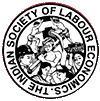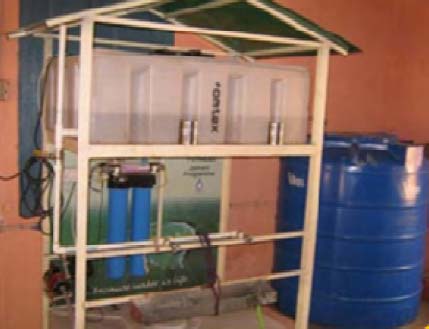/topics/society-culture-religion-and-history
Society, Culture, Religion and History
Goa, going, gone – A film by Carmen Miranda on Goa’s mining
Posted on 24 Sep, 2011 03:03 PMGoa, going, gone – A film by Carmen Miranda on Goa’s mining
As you may have assumed from its title, “Goa, going gone” is about Goa - - or more specifically, it’s about the environmental impact that is likely to result from the rampant mining that is underway in the state. Goa is being dug out of existence and gigantic craters expand across a 95 km long mining belt.
"The water in springs of my hills is cool, do not migrate from this land, o my beloved" - Solving water shortages through ancient knowledge
Posted on 24 Sep, 2011 12:33 AMAuthor: Anupam Mishra
"The water in springs of my hills is cool, Do not migrate from this land o my beloved.”
Call for papers - 53rd Annual Conference, Indian Society of Labour Economics, December 17-19, 2011, Udaipur, Rajasthan
Posted on 19 Sep, 2011 09:16 AM
Organisation: Indian Society of Labour Economics (ISLE)
Venue: Udaipur, Rajasthan
Description:
The Indian Society of Labour Economics (ISLE) is a broad based organization, which promotes comprehensive scientific studies of labour and related matters, provides a forum for free and frank exchange of views on various aspects of labour and related issues among all the people concerned, and disseminates information and knowledge for a wider debate.
Tata Institute of Social Sciences invites papers for a three-day Conference on Globalisation and Social Transformation in Mumbai – Apply by September 30, 2011
Posted on 17 Sep, 2011 08:50 PMOrganizer: Tata Institute of Social Sciences
Venue: Mumbai

The Tata Institute of Social Sciences (TISS), Mumbai is a reputed institution that has influenced the direction of social work education and social research in India. It has earned recognition as an institution of repute from different Ministries of the Government of India, various State Governments, international agencies such as the United Nations, and the non-government sector, both national and international.
Cost-effective urinals established for Musiri Boys High School, Trichy - A case-study of UNICEF- IIT-Delhi's project SCOPE
Posted on 17 Sep, 2011 07:04 PMGuest post by: SCOPE
Forwarded to the Portal by: Ramesh Sakthivel
Release of the book ‘Rising Utthan’ by Utthan, September 17, 2011, Ahmedabad
Posted on 12 Sep, 2011 12:38 AMOrganization: Utthan
Venue: Ahimsa Shodh Bhavan Hall, Gujarat Vidyapith

Utthan envisions a society that imbibes and ensures the values of gender justice, equality, peace and happiness, in practice. It brings together a group of professional development workers, committed to working with communities towards an India free of inequalities and discrimination with equal opportunities, security and freedom for all.
Its efforts to translate this vision into reality is focused on its mission to serve those most vulnerable such as women, adivasi communities, dalits, minorities and the poor.
Basanti and the Kosi: How one woman revitalized a watershed in Uttarakhand
Posted on 07 Sep, 2011 03:22 PMGuest post by: Chicu
Indian Institute of Advanced Study invites applications for the award of Fellowships for advanced research
Posted on 07 Sep, 2011 01:59 PM
The Indian Institute of Advanced Study (IIAS) aims at a free and creative inquiry into the themes and problems of life and thought, as a residential centre for research.
Assessment of Jalamani programme on stand alone water purification systems in rural India - A report by Centre for Media Studies
Posted on 03 Sep, 2011 04:50 PM This report by the Centre for Media Studies, New Delhi presents an assessment of the Jalamani programme of the Department of Drinking Water Supply, Government of India. The centrally sponsored programme commenced in 2008-09 aimed at installing simple Stand Alone Water Purification Systems (SAWPS) in rural schools to enable school children to have access to safe and clean water. The focus was on tackling bacteriological contamination and turbidity in ongoing rural drinking water supply programme.
This report by the Centre for Media Studies, New Delhi presents an assessment of the Jalamani programme of the Department of Drinking Water Supply, Government of India. The centrally sponsored programme commenced in 2008-09 aimed at installing simple Stand Alone Water Purification Systems (SAWPS) in rural schools to enable school children to have access to safe and clean water. The focus was on tackling bacteriological contamination and turbidity in ongoing rural drinking water supply programme.
The assessment study used both qualitative and quantitative techniques such as focus group discussions and in-depth interviews besides structured questionnaire for a variety of stakeholders and research questions. Another important aspect of the quantitative tools was testing of the raw and treated water samples. The study was undertaken in 320 schools spread across 20 districts and six states.





